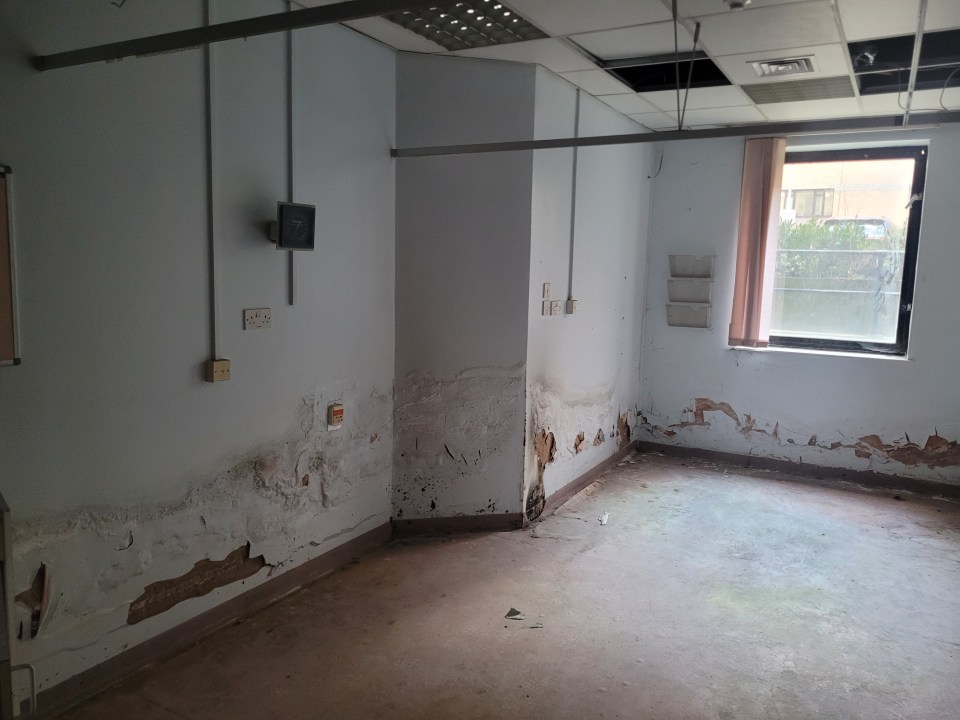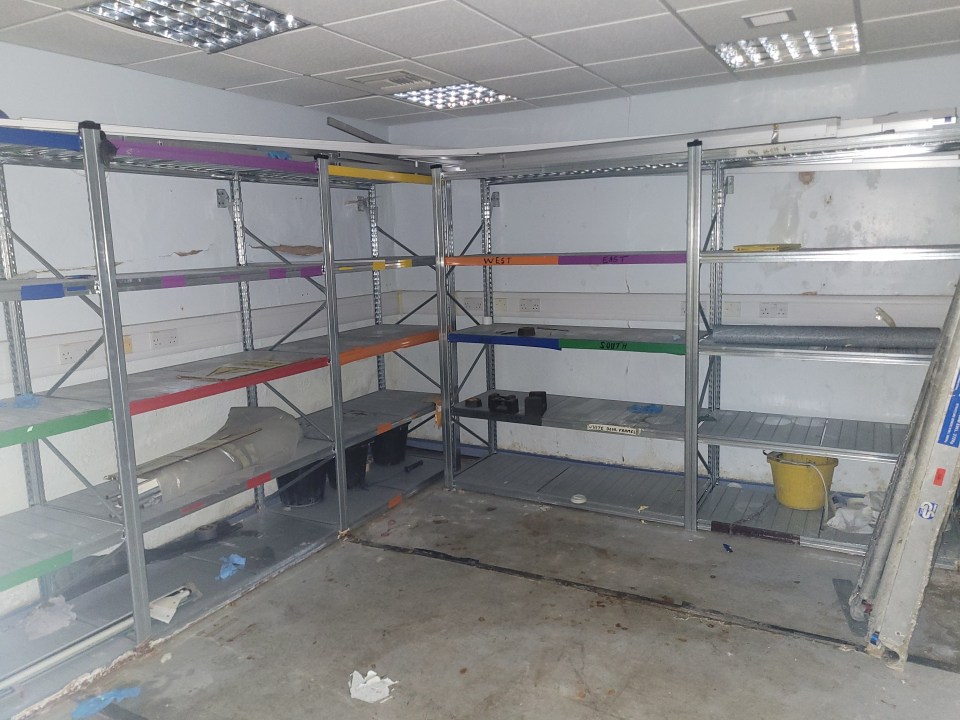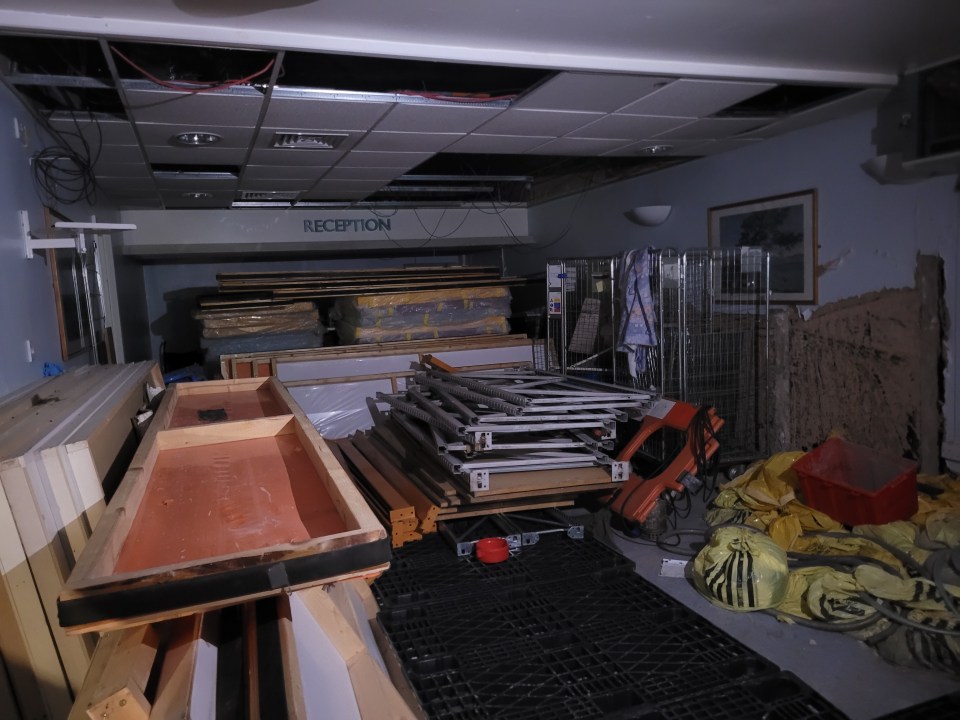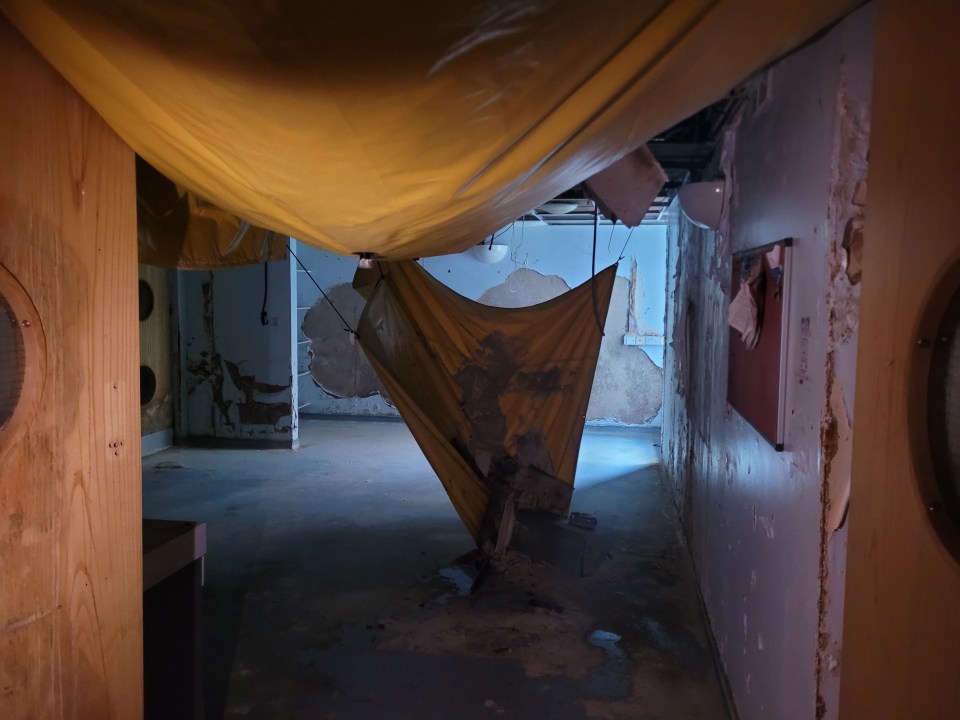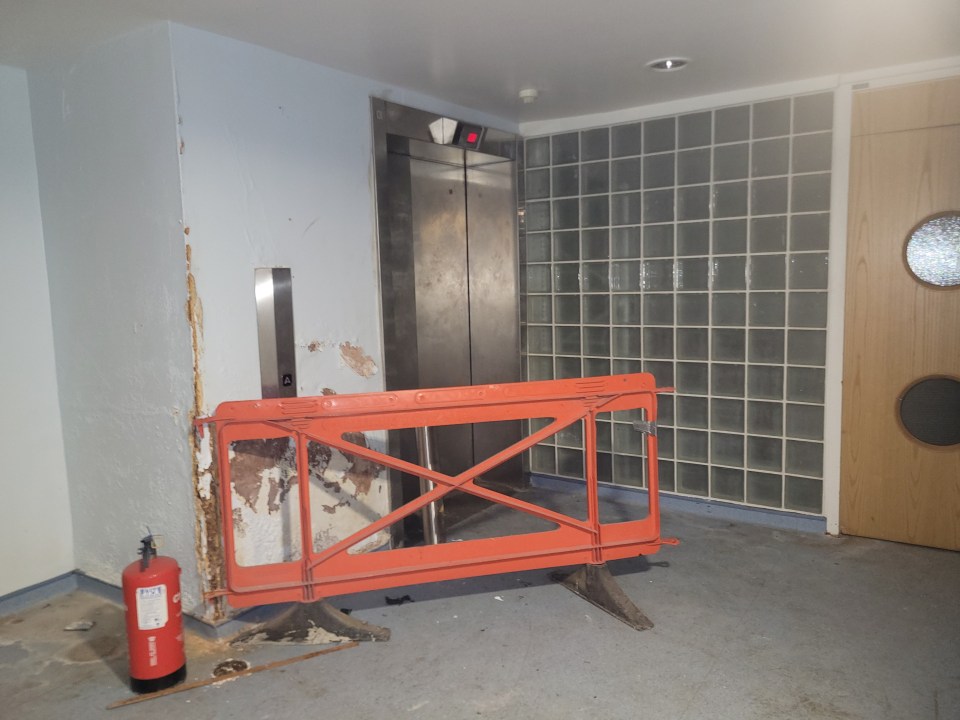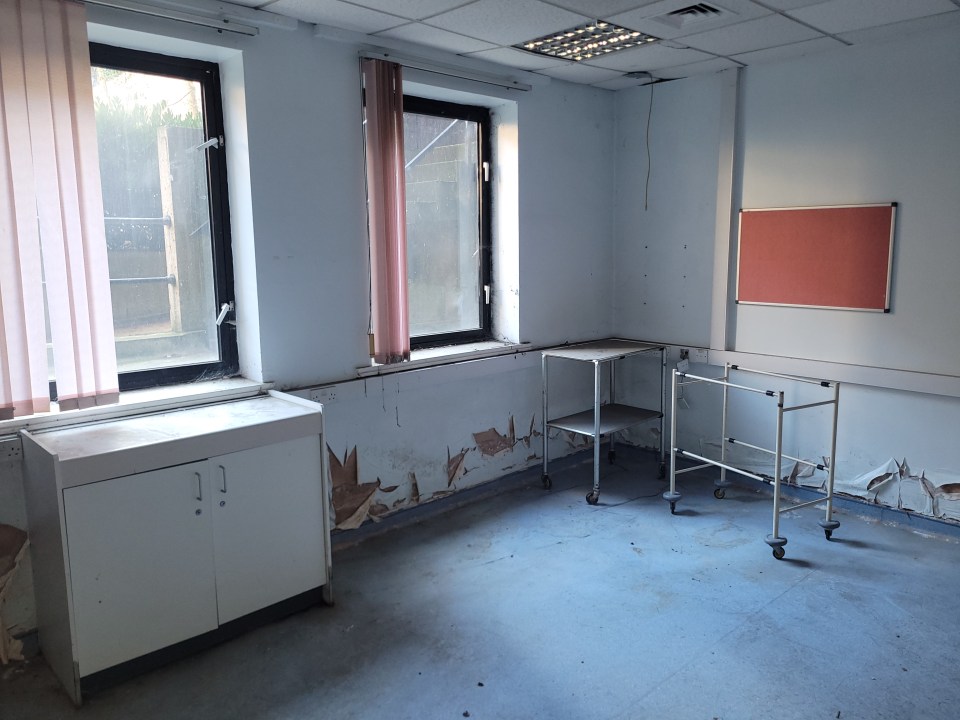EERIE images show a pain clinic that has been left to rot in one of Nottingham’s busiest hospitals.
The outpatient unit at Queen’s Medical Centre (QMC) was once used to treat patients with neurological and physical pain.
However, it has been left abandoned for seven years, due to its severe structural issues.
Shocking images show peeling walls, collapsing ceilings and water flooding the corridors.
The damage has been caused by leaking pipes that were installed back in 1976, when QMC was built.
Hospital employees have shared fears that other wards may “follow the same fate”.
Read more hospital stories
Plans to rebuild and improve the hospital have been delayed until 2037 at the earliest, leaving the abandoned ward to rot.
Michael Soroka described the state of the crumbling building as “shameful”.
He told the BBC: “It is embarrassing to see the state the clinic is in now.
“Catastrophic leaks caused this and it became impossible to maintain.
“We need new pipes badly. Pipe and ventilation issues impact every floor.”
Regular flooding occurs in the ward, which has less than a dozen rooms, due to the ageing pipework and heating and water systems.
And the hospital even experiences flooding on wards that are still treating patients.
Mr Soroka said: “We do have leaks on some wards – one on the F floor floods regularly.
“Any issues are patched up quickly to ensure they are safe for patients and staff, but the root problems aren’t addressed.”
QMC, which was the largest hospital in the UK before it was surpassed by Royal London Hospital, is currently facing issues with overcrowding, with the fact that this clinic is closed exacerbating the issue.
TIMELINE OF THE NHS WAITING LIST
THE NHS waiting list in England has become a political flashpoint as it has ballooned in recent years, more than doubling in a decade.
The statistics for England count the number of procedures, such as operations and non-surgical treatments, that are due to patients.
The procedures are known as elective treatment because they are planned and not emergencies. Many are routine ops such as for hip or knee replacements, cataracts or kidney stones, but the numbers also include some cancer treatments.
This is how the wait list has changed over time:
August 2007: 4.19million – The first entry in current records.
December 2009: 2.32million – The smallest waiting list on modern record.
April 2013: 2.75million – The Conservative and Liberal Democrat coalition restructures the NHS. Current chancellor Jeremy Hunt was Health Secretary.
April 2016: 3.79million – Junior doctors go on strike for the first time in 40 years. Theresa May is elected Prime Minister.
February 2020: 4.57million – The final month before the UK’s first Covid lockdown in March 2020.
July 2021: 5.61million – The end of all legal Covid restrictions in the UK.
January 2023: 7.21million – New Prime Minister Rishi Sunak pledges to reduce waiting lists within a year, effectively April 2024.
September 2023: 7.77million – The highest figure on record comes during a year hit with strikes by junior doctors, consultants, nurses and ambulance workers.
February 2024: 7.54million – Ministers admit the pledge to cut the backlog has failed.
August 2024: 7.64million – List continues to rise under Keir Starmer’s new Labour Government.
September 2024: 7.57million – A one per cent decline is the first fall since February and a glimmer of hope.
December 2024: 7.46million – The list has fallen for four consecutive months.
January 2025: 7.43m – still falling but slowly, likely due to added strain on emergency services and more cancellations due to illness over winter.
Back in winter 2023, patients were forced out into corridors, after the hospital’s A&E department ran out of bed space.
Across the city, Nottingham City Hospital has also been forced to abandon buildings.
Two wings of the St Francis building have been left to decay, due to repeated roof leaks and steam system failures.
The Conservative’s previously promised to build 40 NHS hospitals by 2030, with Nottingham’s hospitals included in the plans.
However, health secretary Wes Streeting announced in January that work in Nottingham will not start until at least 2037, due to affordability issues.
Defending the push back the Department of Health and Social Care said: “The New Hospital Programme was on a completely unrealistic timeframe and was unfunded.
“We have now set out a timeline that’s both realistic and deliverable, alongside £1 billion to address the backlog of critical NHS maintenance and repairs to help ensure hospitals are safe and sustainable.”


